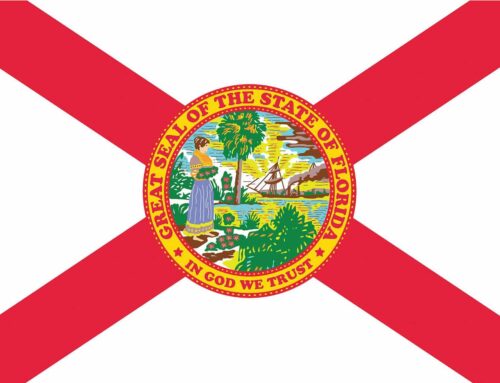On Election Day, November 8th, 2022, Colorado voters passed a ballot initiative legalizing psychedelic mushrooms in Colorado. Colorado Proposition 122 decriminalized the possession and use of psychedelic mushrooms and certain plant-based psychedelic substances in Colorado law for individuals aged 21 and over. It also allows people who have been convicted of offenses involving these substances to have their criminal records sealed. So they won’t be discoverable in an employer or landlord background check.
But that doesn’t mean you’re allowed to drive under the influence of psychedelic mushrooms… nor under the influence of their psychoactive ingredients like psilocybin, mescaline, dimethyltryptamine (DMT), and ibogaine. These substances impair your ability to drive (if they’re any good, that is), and if you’re caught, you’ll face serious and expensive legal and financial consequences.
In Colorado, driving after using magic mushrooms or with any of these derivatives in your system could get you prosecuted for driving under the influence of drugs (DUID), or a lesser charge of Driving While Ability Impaired (DWAI).
A DUID conviction under Colorado law gets treated exactly the same as a DUI:
First-time offenders face fines up to $1,000, a year in jail, a nine-month license suspension. a could suspend your license for nine months, fine you up to $1,000, order you to perform up to 96 hours of community service and/or imprison you for up to a year. You’ll also need to attend drug and alcohol awareness classes or victim impact panels. And those aren’t free.
It’ll also ding you for twelve points on your driver’s license, and cause your car insurance company to jack up your premiums, or even drop your coverage outright.
And that’s just the beginning.
A DWAI is considered a lesser offense than a DUID in Colorado. But it has a much lower standard of proof: You can be convicted of a DWAI if the prosecutor can show that you were impaired even in the slightest degree.
And if you’re busted operating a vehicle with psilocybin in your system as shown by a blood test, this won’t be difficult.
Colorado is now one of only two states to have legalized the recreational use of psychedelic mushrooms – the other being Oregon, which first legalized it in 2020. Denver and the District of Columbia also have partially decriminalized psychedelic mushrooms, directing law enforcement to treat these offenses as low-priority offenses.
Beginning on January 1st, 2023, you can use these substances in licensed “therapeutic” centers within Oregon. Home use, however, is still illegal. And, of course, you can’t use it in your car!
Psilocybin is also still illegal under federal law, as well. It’s categorized as a Schedule I substance, along with heroin and angel dust. So don’t cross state lines with it.
Voters also recently approved recreational marijuana in Maryland and Missouri, bringing the number of states to have legalized marijuana use at the state level to 21.
Can you refuse a roadside sobriety test in Colorado?
Yes, you can refuse a roadside sobriety test in Colorado. And you probably should.
Submitting to a roadside sobriety test is not mandatory under the law in Colorado. Law enforcement cannot penalize you in Colorado for refusing a roadside sobriety test. That is, they can’t prosecute you for a second offense just because you refuse a roadside sobriety test. It won’t result in an automatic license suspension.
However, if you do refuse the sobriety test, they’ll probably go right to the breathalyzer.
The good news is that neither shrooms nor marijuana, nor their various dispensary derivatives, will show up on a breathalyzer test.
So if you keep your mouth shut, don’t consent to a search, and you aren’t obviously impaired, you’ll blow zero on the breath test. And the cop won’t have anything to go on.
If you take the roadside sobriety test, you can’t improve your position. You can only make it worse, by giving the officer something to claim you were impaired.
Roadside tests are notoriously unreliable. They are known to generate a lot of false positives. And they are too subjective.
If the police officer wants to arrest you even after you blew a zero on the breathalyzer, and you weren’t otherwise obviously impaired, and you shut your trap, you’ve given your attorney a lot of ways to contest the charge. You have an excellent chance of getting off. Prosecutors may have a real fight on their hands just demonstrating probable cause.
Preliminary vs. Evidentiary Breathalyzer Tests in Colorado
When you’re stopped on suspicion of driving under the influence in Colorado, the police officer may ask you to take a preliminary breathalyzer test.
Technically, you can refuse the preliminary test without a legal penalty, just like you can with a field sobriety test.
If you are confident you haven’t been drinking enough to be legally intoxicated, though, this is one test it might be a good idea to consent to. If you blow well below the legal theshold, and you keep your mouth shut, don’t consent to a search, and blow well below the legal limit, the officer won’t have much to go on, and will most likely release you.
Maybe you’re high on something besides alcohol, and maybe you shouldn’t be released. But without a hot blood alcohol level, and without other obvious signs of intoxication or impairment, prosecutors won’t be eager to pursue the case.
And if the officer lets you go at this stage, there won’t be a blood or urine test that would show other intoxicating substances that could put you in legal jeopardy.
Don’t Refuse an Evidentiary Breathalyzer or Blood Test in Colorado
While it’s fine to refuse a roadside sobriety test in Colorado, don’t refuse an evidentiary breathalyzer or blood test.
The evidentiary test is separate from the preliminary test at the roadside. It’s usually administered at the police station. However, it could be administered at a hospital. Evidentiary blood tests are normally taken at a hospital as well.
Under Colorado law, all drivers arrested on suspicion of DUI, DUID, or DWAI are legally deemed to have given express consent to an evidentiary breath or blood test.
Refusal may result in the automatic suspension of your drivers’ license for one year.
And if they get a warrant, they can use force to compel you to submit to a blood draw.
So if you’re zonked on something, and you get arrested, they’ll probably get the evidence they need to prove you were impaired.
So there’s no upside to trying to refuse an evidentiary breathalyzer or blood test. But there’s a lot of downside.
Chemical Tests and Shrooms
Psilocybin and other psychoactive substances associated with mushrooms won’t show up on a breathalyzer. But if you’re arrested, your blood and urine samples will be screened for a broad array of other substances, as well.
This is where testing can get tricky: The effects of psilocybin wear off in a few hours. But the substance will show up in your blood and urine sample, potentially for days. This means you can test “hot” for psilocybin well after you are no longer impaired by it, and even potentially the next day after you use it!
If you’re arrested and test positive for psilocybin, prosecutors will try to make you feel like your case is hopeless and you have no choice but to enter a guilty plea.
But a good lawyer may be able to fight this case effectively. Don’t make any moves or even make any statements without speaking with an attorney.
How To Reduce Costs Following Your DUID Conviction in Colorado
After lost work, lost jobs, and damaged careers, the most significant financial cost of a DUID or other impairment-related related driving conviction in Colorado is the increase in your car insurance premium.
Following your conviction for an alcohol or drug-related driving offense, you’ll almost certainly be required to have your insurance company file an SR22 with the Bureau of Motor Vehicles on your behalf as a condition of license reinstatement.
This document is just a verification that you are carrying the state-required minimum liability car insurance.
If your policy lapses for any reason, the insurance carrier will report it to the Colorado DMV, which will automatically suspend your license.
But insurance carriers typically charge much more for SR 22 insurance than insurance for other drivers. On average, a DUI/DUID/DWAI conviction in Colorado causes car insurance premiums at any given carrier to increase by 45%, according to a Forbes study.
You usually need to keep your SR 22 active for three years. If the certificate becomes inactive during any part of those three years, you’ll need to get a new SR 22 … and start the three-year period again.
That means you’ll still be paying the elevated car insurance premiums for another three years.
The increased car insurance premiums over that period of time will amount to several thousand dollars.
Further, a DUI, DWAI, or DUID conviction will remain on your record for ten years in Colorado. Where it could continue to affect your car insurance premiums long after your SR22 requirement elapses.
But not all car insurance companies deal with high-risk drivers the same way. Some carriers are more forgiving of one or two dings on your driving record than others. And some insurance companies don’t want high-risk SR22 drivers on their books at all, and will jack up rates so high as to be non-competitive, or drop you altogether.
What To Do Now.
To limit the damage after a conviction, your best bet is to use an independent car insurance broker (not a “captive” agent!) to shop around as many different insurance companies as possible. So you can choose the one that gives you the best value.
That’s what we’re here for.
Lots of car insurance agents are “captive.” That means they can only represent a single carrier. They can’t show you any alternatives – even if their parent company is the worst deal in the state for SR22 drivers – they have to show you their products and only their products.
What’s more, those companies know that if you’re in their captive agent’s office, or on the phone with them, you’re probably not even shopping around. There’s no competition.
And they’ll price accordingly.
At Select Insurance Group, we are independent insurance brokers. And we’ve built our practice around higher-risk and nonstandard risk drivers. We don’t judge. We don’t treat you like a second-class customer because you’ve had a violation or have an SR22 filing. We treat everybody fairly.
Our agents can help you shop around compare offers from many different companies. All of whom know they have to compete for your business.
So we can almost always find you a better value. Especially if you’ve made some mistakes behind the wheel.
Don’t Get Jacked Around!
Don’t just take the deal your current carrier gives you, without shopping around first. Don’t stand for them jacking up your car insurance premium by 100 to 200% because of your mistake. They’re probably taking you for a ride.
You have options. And a better deal is out there.
Let us help you find it!
Just click here and fill out a brief form, and we’ll get busy helping you find the best possible car insurance deal for your individual situation.
Or call us at (855) 438-7353, and ask to speak with an agent!






